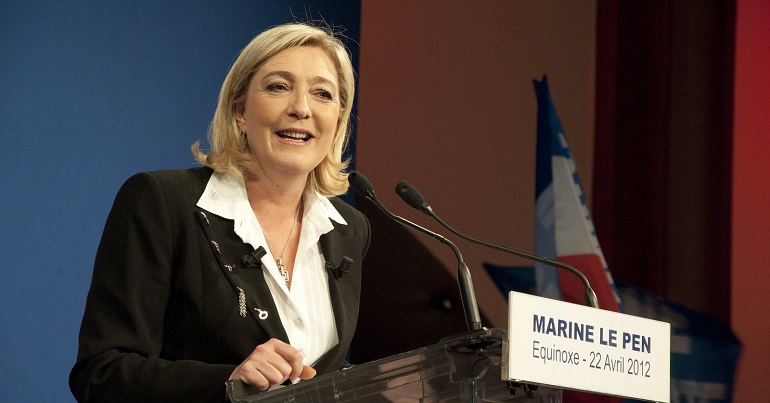The rising threat of Green Nationalism
A week ago, on August 3, a man walked into the parking lot of a Walmart in El Paso Texas. He opened fire with a semi-automatic rifle on the crowd of people present and continued to fire throughout the store. By the end of this rampage, 22 people were dead with 2 more set to pass away in the coming days. Many more individuals fought and continued to fight life-changing injuries received from the shooting.
I will neither name the shooter, nor share their wider writing, as this goes against every ethical bone in my body.
When arrested the shooter stated that they had wished to shoot as many Mexicans as possible. In addition to this a manifesto was posted online and linked with the shooter. It stated that they believed there was within America a “cultural and ethnic replacement brought on by an invasion.” Further references are made to concerns about the intermarriage of people of different races, and the stated hope of the attack was that Latinx communities would “return to their home countries.”
Clearly, this was another attack in the wave of domestic white nationalist terrorism which seems to be gripping the United States.
Green tones
But this attack had another element found in the manifesto, a reference to environmental degradation as a concern. The title of the manifesto “The Inconvenient Truth” is a striking call back to Al Gore’s “An Inconvenient Truth”. It suggests that the only way our lives can become more sustainable is “if we get rid of enough people.”
Sadly, this is not the first time a white nationalist terrorist has cited environmentalism as a reason for their actions. The El Paso shooter praised the Christchurch attacks in New Zealand where 51 people were killed in mosques. The Christchurch terrorist had referred to himself as an eco-fascist and stated that there is “no nationalism without environmentalism.”
This unholy link between white nationalism and environmentalism, whilst finding new expression in these attacks, should not be seen as a novel political development. In fact, in many Western nations there is a longstanding tradition of linking nascent nationalism with the politics of nature.
Blood and Soil
Historians of eco-nationalism have pointed to the German Romantic tradition, with its focus on traditional peasant agriculture and concern that the destruction of such farming practices were destroying the German identity. This then fed into the development of the Nazi party, with its established rural support and focus on “blood and soil.” The party included figures passionate about environmental farming issues such as Richard Walther Darré. He was also a high-ranking SS member, and a virulent racist.
One could go back and forth, and historians have, about whether the Nazi party did genuinely incorporate environmentalist thinking into its fascism. Certainly, critics of the German Greens in the post-war period stressed this aspect of German political history. Others simply have suggested that whilst there were points of policy overlap on issues of agriculture and conservation, German environmentalists in the inter-war years did not incorporate Nazi racism into their beliefs.
But the use of a warped view of nature, one of genetic determinism and oversimplified natural competition, as the single source of truth which human society was to organise itself represents a key concern here. This reduction of social reality to crude biology must be fought whenever it arises.
At a minimum the use of nature imagery, of one’s “national land and soil”, to justify and support racist and xenophobic nationalism is not new, it has been a latent possibility facing the environmental movement for many years.
A modern problem
There are a number of environmental groups around the world who have suggested anti-immigration and nationalistic policies based on environmental concerns. Some figures associated with the Deep Ecology movement of the 20th Century felt that immigration had to be stopped to the US, based on the need to conserve resources. In Australia fringe parties such as Sustainable Australia have demanded a reduction in immigration to slow population growth.
Even worse, far right nationalists are trying to rebrand their parties on the basis of a national environmentalism. The French National Rally (formerly known as the Front National) has attempted to present itself as environmentalist for a number of years now, with its “patriotic ecology” project. The recent Denmark general election saw the Social Democrats tout their environmental record as well as a hard-nationalistic anti-immigration line, and receive the highest share of the vote.
It is only a matter of time before the Conservative party, whose shift to the nationalist right under the Brexit crisis is exceptionally clear, attempt to present themselves as environmental as well, as they did during Cameron’s leadership. I would not be surprised if when the Brexit party release their policies, thus far absent, they attempt to design some “Green Britain” eco-nationalist policies.
Anti-capitalism isn’t enough
What’s also striking about the manifesto of the El Paso Shooter, is the decidedly anti-capitalist nature of some of the pronouncements. It expresses a belief that both major parties are being overtaken by corporations, and that consumerism has become rampant and unavoidable. One wouldn’t be surprised to see such phrasing in the writings of a progressive environmentalist, without the racism and nationalism.
With the collapse of the Soviet Union at the end of the 20th Century, there were few who would describe themselves as anti-capitalist. This reflects what Mark Fisher described as “capitalist realism”, where ideological failure meant we could not conceive of a way of existing which is not capitalist. This wilderness of anti-capitalist thinking has led many to view anyone who was opposed to capitalism at the turn of the Century as a leftist ally. An example of this is those who support Bashar Al Assad as an “anti-imperialist” despite his horrific crimes.
To reiterate what should be obvious but is rarely treated as so. Not all anti-capitalists are progressive, they can in fact be deeply anti-democratic and reactionary. Not all environmentalists are progressive, they can incorporate the same horrific views of society that many reactionaries have held.
Moving forward
What is important now is solidarity with the victims of white nationalist terrorism and those who are fighting such movements in the US and the wider world. Looking ahead more efforts have to be made to criticise and side-line those who try to adopt environmental causes to their nationalist and xenophobic causes. The current fight is not simply to save the planet, but to do so whilst wedding environmentalism with anti-racism and anti-nationalism. The El Paso shooter cannot win, and environmentalists should rally to make that so.
This article is the first in a series on contemporary environmentalism and the dangers of ecofascism. The series has new articles published weekly, all of which can be found here.
Image credit: Remi Noyon – Creative Commons





Explains well and the links and literature have not changed much, except to avoid the public gaze, but nowadays it is very much a US, UK and Australian mainstreamed obsession.
‘Like the El Paso shooter, Tanton and FAIR’s early board members subscribed to a version of environmentalism that promoted eugenics; among them was an ecologist who advocated forced sterilization, and another who said that U.S. diversity efforts was “Europhobic.” In some of his early writings, Tanton argued that unless the U.S. borders were sealed, the country would become overrun by immigrants “defecating and creating garbage and looking for jobs.”’
https://news.vice.com/en_us/article/59nmv5/eco-fascism-the-racist-theory-that-inspired-the-el-paso-and-christchurch-shooters-and-is-gaining-followers
Tanton, recently deceased, was described as the ‘most influential unknown man in America’ by the NYT through his efforts in linking immigration and population growth induced, environmental degradation. Tanton and Paul Ehrlich (patron of Population Matters UK) were with Zero Population Growth ZPG (supported by Rockefeller, Ford and Carnegie Foundations), and helped found same in Australia, now Sustainable Australia.
https://www.splcenter.org/hatewatch/2019/07/18/john-tantons-legacy
Over the years deep pocketed oligarchs have indirectly supported these groups and their ‘thin academic veneer’, astro turfing, media access and influencing policy (e.g. loosening environmental regulations); radical right libertarians with a penchant for white nationalism, or ‘racism in a fancy green wrapper’.